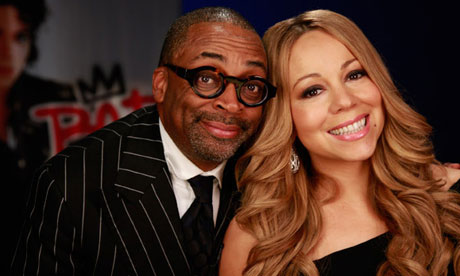
Michael Jackson revisionism gets a huge boost with Spike Lee's new film, a terrifically warm, affectionate and celebratory study of Jackson's 1987 album Bad. Lee wants to clear away the tabloid smoke and spite, and bring the focus back to Jackson's professionalism, his craftsmanship, his artistry and his pop genius; the movie defiantly insists that Jackson was and is superior to his detractors.
Lee uses richly evocative clips and unseen archive material, including Jackson's stunning and mesmerically bizarre video demo of how he wanted the cartoon raisins representing him to behave for a TV ad. Lee doesn't try to pretend that he was not eccentric, but insists that Jackson's eccentricity isn't the point. He interviews the people who are influenced by Jackson now and those who were around him then – creatives, technicians, legal eagles – the massed Houston team that launched this heroic pop astronaut into space.
Lee begins by looking at Jackson's earlier album, Thriller, which established his extraordinary global dominance. Interestingly, Bad came along at a time when Jackson might have been beginning to feel his star was actually, if only by a millimetre, beginning to wane. Prince was the new pop sensation and hip-hop was emerging. Moreover, he felt criticised on the issue of African-American solidarity and also for having allegedly failed to exert enough raunchy heterosexiness.
Bad was going to change all that: a ferociously competitive counter-attack or rearguard action, the first album to be conceived on a stadium scale. He had in mind a bold new video, or "short film" as Jackson always high-mindedly called it, based on the true-life story of a black boy shot by a New York cop. Scorsese directed the film that showed Jackson as a shy student, confronting Wesley Snipes's tough guy, outfacing him with his dance moves and finally getting street respect: he's Bad. There is a very funny interview showing Scorsese and his editor Thelma Schoonmaker watching the film now, with a touch of bemusement. Obviously, he isn't convincing as a warrior, but the point is that Michael Jackson, that delicate pop aesthete, alchemises his vulnerability and naivete into pure strength. And it works: he really is Bad.
His utterly distinctive dance style is related by Lee to a tradition encompassing Fred Astaire and Buster Keaton, and he makes a persuasive claim that he is a centrally important figure in that tradition. Unlike Frank Sinatra or Elvis Presley, Jackson did not make conventional feature films, and so we don't have that as a visual resource, and of course the videos and live footage, startling and brilliant though they are, can't give us an extended view of what Jackson was like in ordinary, walking-and-talking real life. And his interviews were rare, and guarded.
Spike Lee's emphasises instead what Jackson's achieved in the public sphere: in music and in dance, and his exuberant reverence for the lonely King of Pop is contagious. It's impossible to watch this film without a great big smile on your face.

